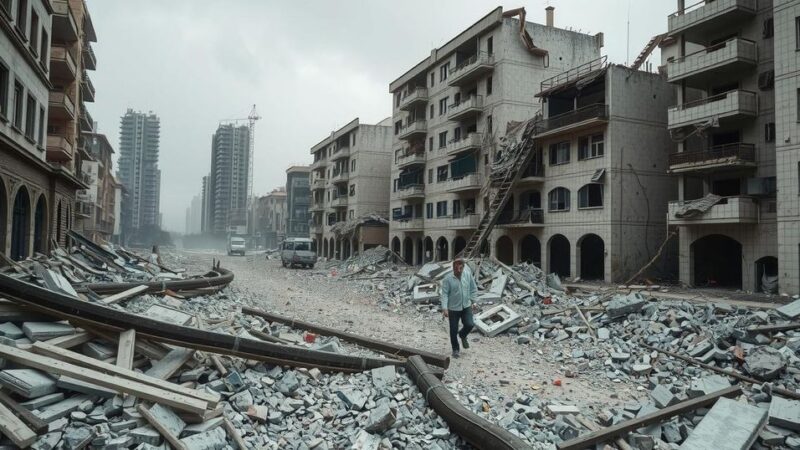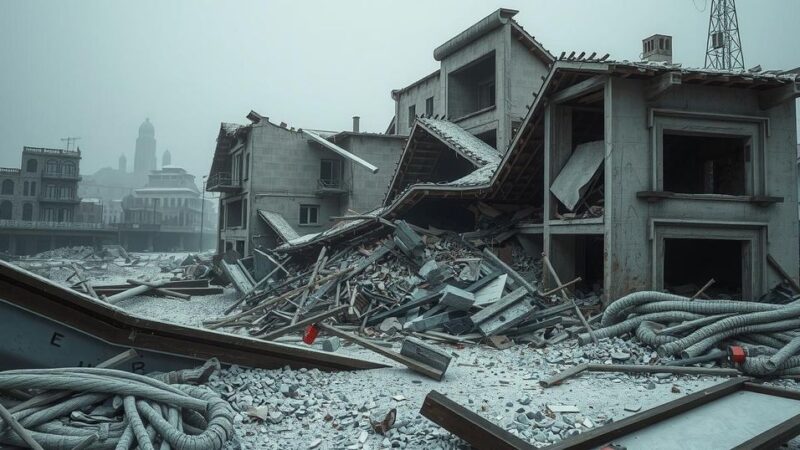In 2024, severe flooding affected 14 countries in West and Central Africa, impacting 4 million people. Increased rainfall has overwhelmed infrastructure, particularly in Nigeria and Cameroon, while some areas face drought. Recent reports indicate significant casualties and displacement, leading to serious food security concerns destined to affect 2025.
The year 2024 has been marked by severe flooding, resulting in significant loss of life and livelihood across 14 countries in West and Central Africa, affecting approximately 4 million individuals. This calamity is primarily attributed to increased rainfall events, both in intensity and volume, which have overwhelmed water retention infrastructure, exemplified by the incidents in Maiduguri, Nigeria, and Mayo Danay, Cameroon. Concurrently, some areas, such as Burkina Faso and Ghana, are experiencing below-average rainfall, leading to drought and exacerbating humanitarian challenges.
The major river basins in the region have demonstrated an increasing trend in rainfall since early July, with precipitation rates notably surpassing long-term averages. Current rainfall data indicates that the Niger and Senegal basins are witnessing heights of standard deviations above typical levels, while the Lake Chad basin indicates a concerning trend beyond two standard deviations. Historical patterns suggest that rainfall may persist until late October, raising alarm over the potential for ongoing flooding that poses serious humanitarian issues.
On August 22, the government of Niger reported 217 fatalities, 200 injuries, and over 350,000 individuals displaced due to flooding across the nation. In Cameroon, the UN Office for the Coordination of Humanitarian Affairs (OCHA) recorded critical flooding incidents since August 19, notably impacting the Logone et Chari and Mayo Danay divisions by month-end. By early September, the United Nations Population Fund (UNFPA) highlighted that severe winds and torrential rains destroyed 1,700 homes, displacing approximately 3,300 people.
The ramifications of these floods extend beyond displacement, presenting serious food security implications for the year 2025, thus raising urgent concerns within the humanitarian landscape of the region.
In conclusion, the flooding throughout West and Central Africa in 2024 has resulted in grave humanitarian challenges, displacing millions and causing significant fatalities. The compounding issues of flooding and drought have led to dire food security concerns that may impact the region into 2025. Ongoing monitoring and humanitarian response efforts are critical to mitigate the effects of this crisis and support affected populations.
Original Source: reliefweb.int






